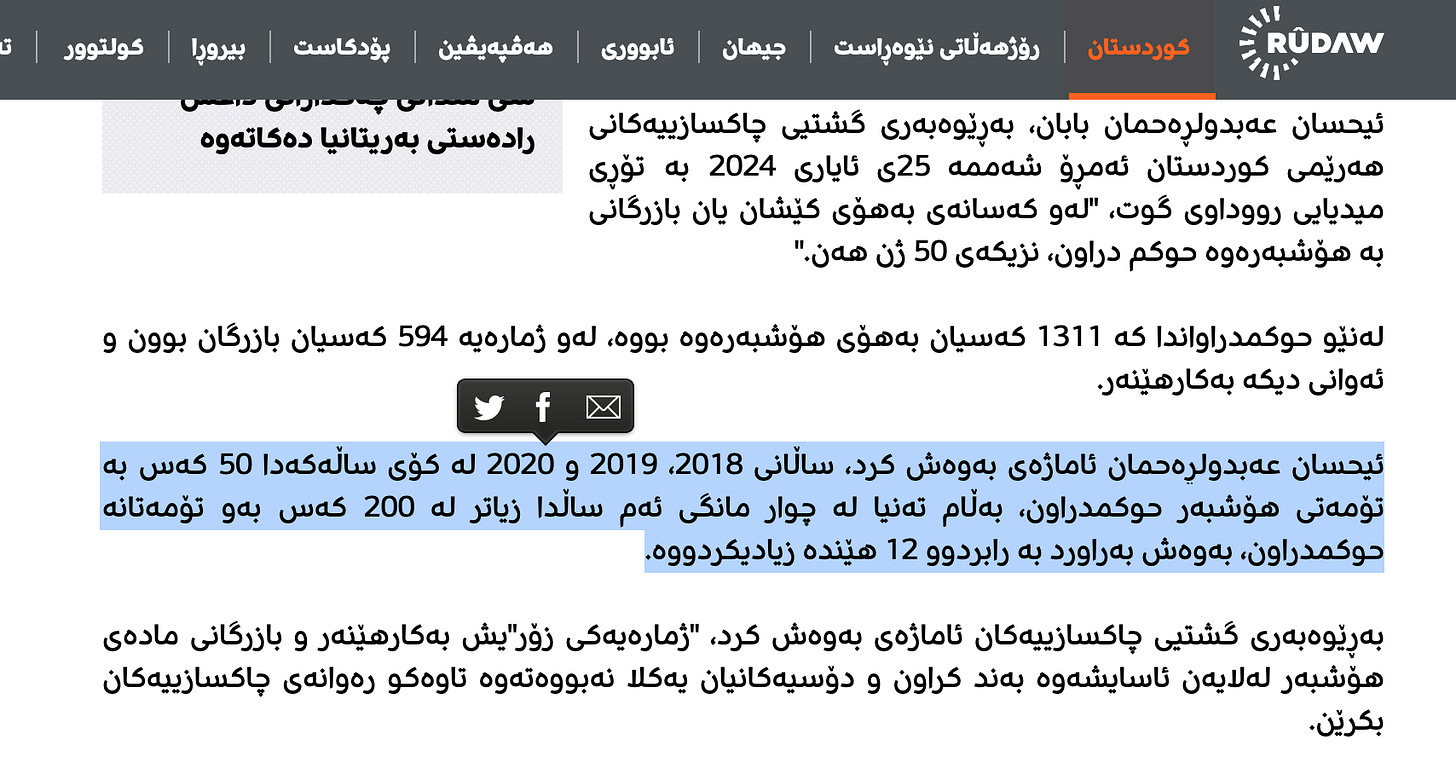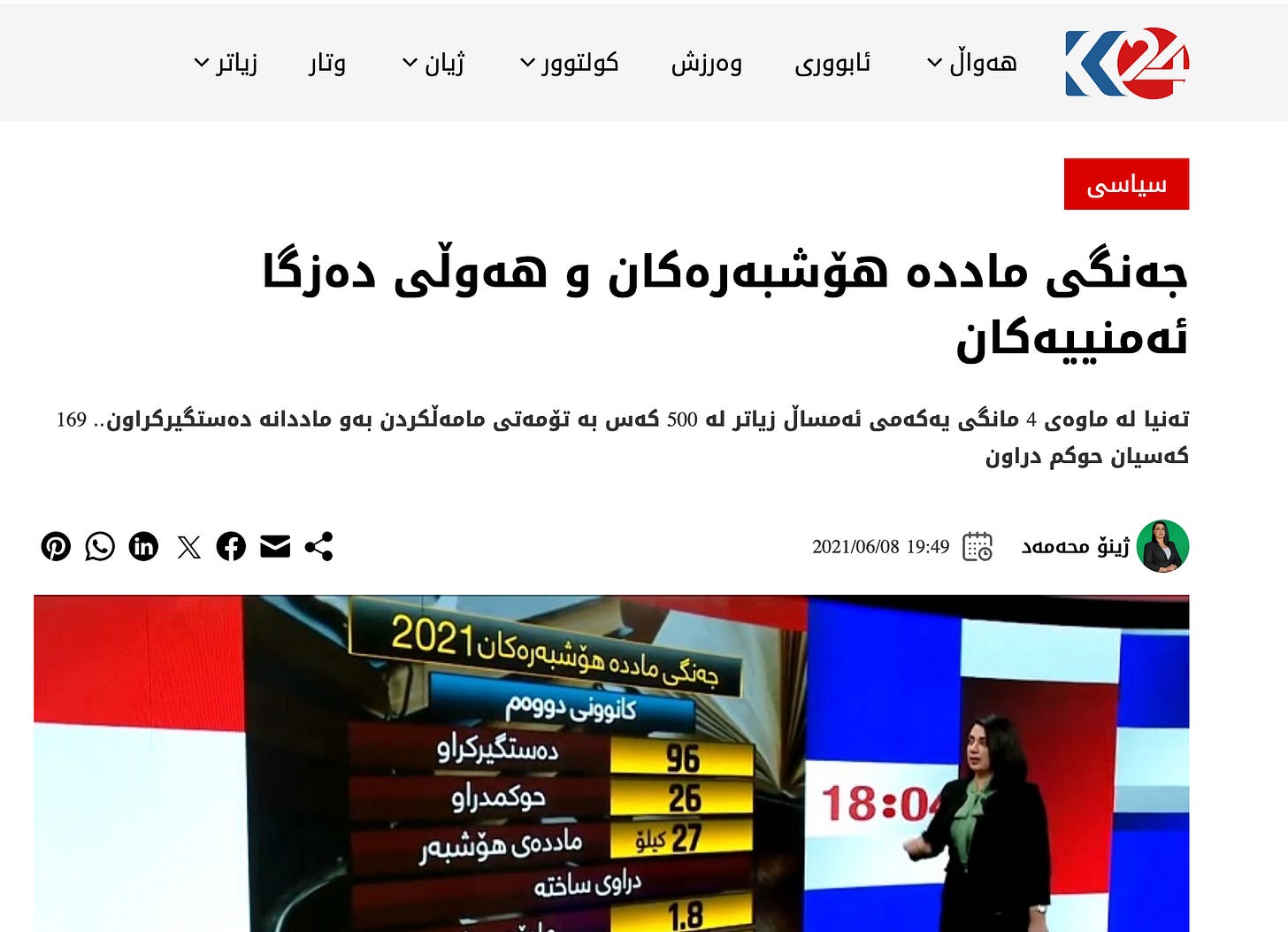Unveiling the Chaos: KRG's Mishandling of Data Is A Recipe for 'Policy' Disaster
A significant issue with Kurdish media is their lack of understanding regarding the importance of cross-verification or triangulating statements, especially when it comes to data-related information. The KRG appears to have little comprehension of how systematic data gathering works, and they haphazardly throw out numbers to dramatize or downplay their allegations in whichever direction they desire, without much challenge from the media or any monitoring entity.
Here is an example: a report from Rudaw published today is entirely based on data from the Director General of the KRG's Corrections Department, which is supposed to be an authoritative entity providing data on drug-related issues. In the report, he claims that in 2018, 2019, and 2020, only around 50 people were convicted on drug-related charges annually. However, he goes on to state that in the first four months of 2024 alone, more than 200 individuals have been convicted on similar charges, representing a staggering 12-fold increase compared to previous years.
The problem is that his data is completely inaccurate and can easily be refuted through open-source data from the KRG's own records on this very matter from the previous years. For instance, in the first four months of 2019, approximately 434 individuals were arrested for drug-related offenses, and around 157 were sentenced. In comparison, during the same period in 2021, 500 individuals were reportedly arrested on drug-related charges, and 169 were sentenced. Therefore, the same period from 2021 to 2024 represents an 18.34% increase, while he claims a 12-fold increase, which is equivalent to a staggering 1100% increase.
The question that arises is: when your data is so grossly inaccurate, how can you design any sound policy? Aside from all the other disastrous implications, this is comically bad and reveals yet another aspect of the KRG's incompetence. The lack of reliable data and the absence of a proper fact-checking mechanism within the Kurdish media landscape not only misleads the public but also hinders the development of effective strategies to address critical issues such as the drug crisis in the region.
We have put ‘policy’ between quotes because, unfortunately, we don't believe they actually design any genuine policies. However, we have to use this word in the absence of a better term that conveys the idea we are trying to put forward here.





